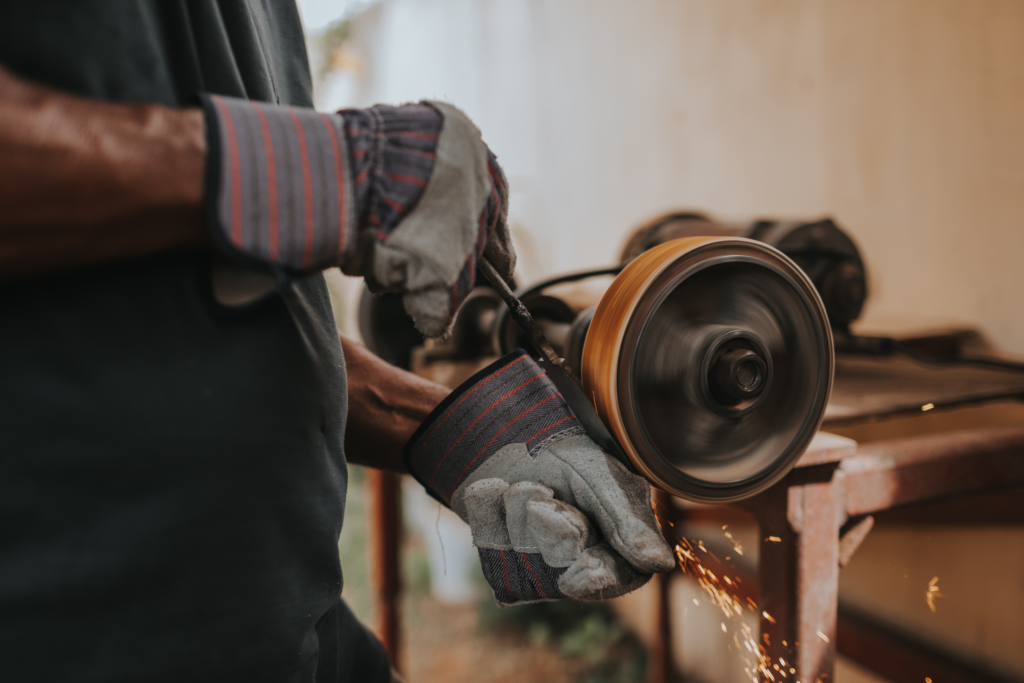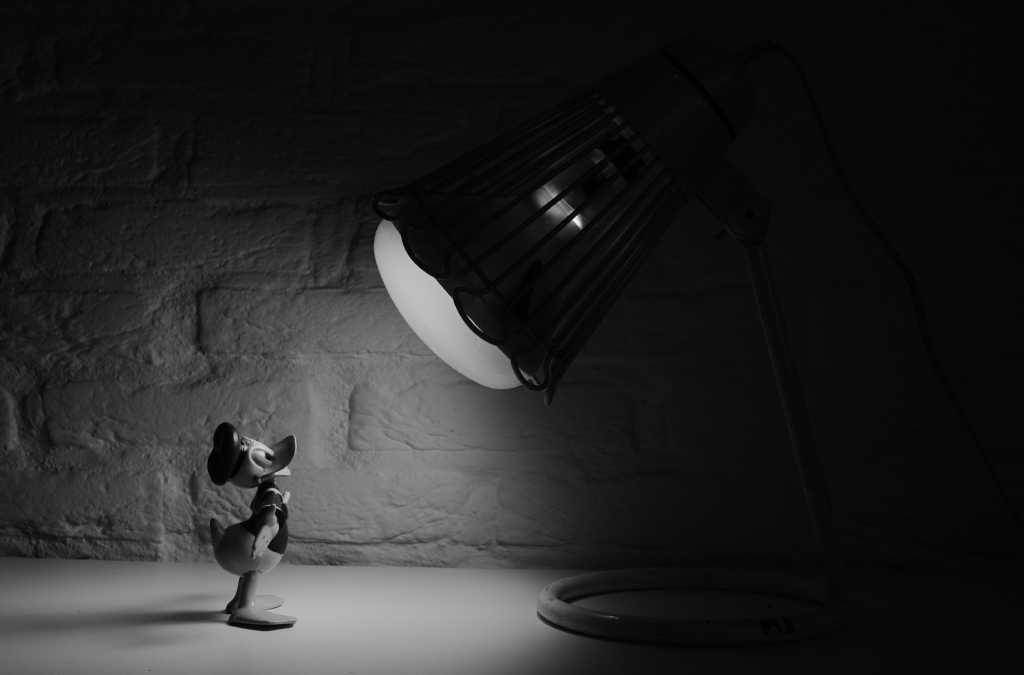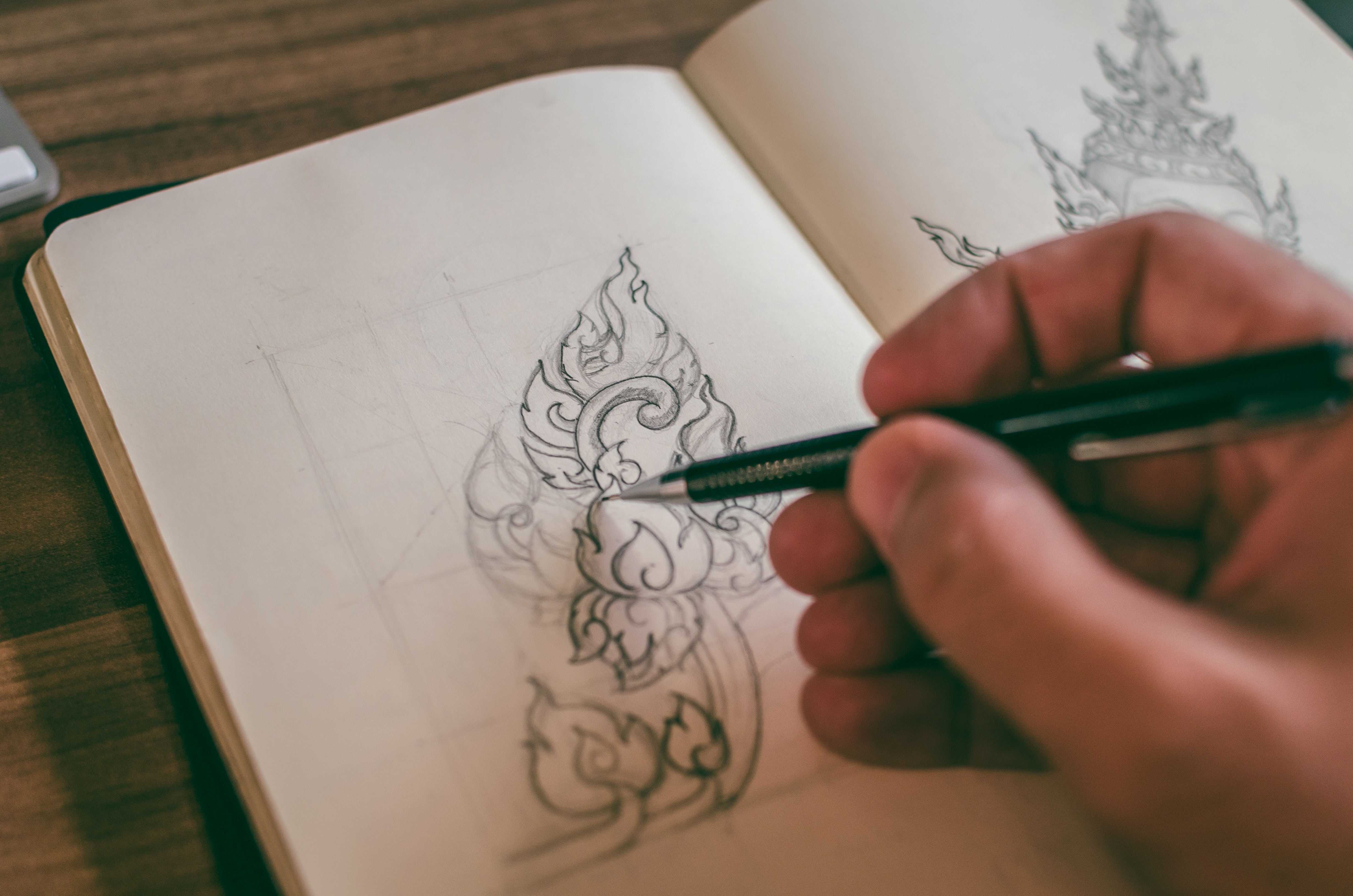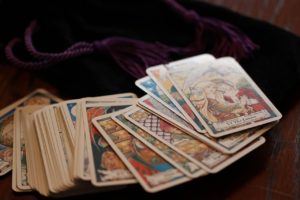A couple weeks ago, I posted an article about getting started in the arts. It was a “call to action,” a rallying cry for people who might be procrastinating, or struggling to find the motivation to dive into an art or project that’s been sitting in the back of their mind. But, one reader pointed out something very important: motivation doesn’t last forever. To keep practicing, you need discipline… but building discipline is a problem for many artists.
Given the massive importance of discipline and practice to artistic progress, I decided that building discipline would be the topic for this blog post. Note that this post isn’t going to be as “clean-cut” as the last one. Breaking down the barriers that keep you from starting is much easier than building up the discipline to keep going. Likewise, building that discipline will require learning some self-knowledge in order to plow through the blocks you’ll find in your way.
This won’t be a list of easy fixes, by the way. When I first started writing this essay, I got about two lines in before going “no, this has to have been done before. A dozen times, even!” Sure enough, there are a lot of articles on discipline and building creative habits, all packed with the same handful of “easily actionable” tricks that personify SEO-focused writing, these days. Now, these tricks aren’t unhelpful. They’re decently useful, and one or two tricks overlap with my own ideas.
But, tricks only get you so far, and they aren’t what’s gotten me or the other stubborn creatives I know to keep practicing their craft or find the discipline to keep at it even when they would rather smash their head against the damn keyboard than sit there and practice.
I have no interest in giving you a bag full of tricks and saying it’ll solve all your problems. First off, because a quick google search will get you exactly that; secondly, because I don’t have one; and lastly, because I’m not a liar.
Rather, my goal here is a little more… well, personal and long-term. I want to outline the mental and habitual lessons I’ve learned in the process of becoming more disciplined, stubborn, and tenacious, in the hopes that you can take those lessons and use them to skip some of the hardship I had to go through. By the end of this, I want you to see some outline of a path standing in the fog, and to have some idea of how to start walking.
Overcoming your fears, depression, and self-doubt in the arts can go a long way towards helping you deal with them in the rest of your life.
So, let’s begin with what I wish someone had said to me a long time ago:
Knock off the negative self-talk and don’t undercut yourself before you’ve started
It’s easy to start with the assumption that you’re too lazy, unreliable, or “not good enough” to get better at an art or to stick to a practice schedule. I could spend all day postulating about why so many of us feel that way, but this isn’t the time or place. And besides, it’s irrelevant: no matter the reason, telling yourself you “can’t” do it or describing yourself as lazy will stop you before you start.
When that thought starts creeping in, you need to ask yourself something: “says who?” Who says that you can’t keep to a schedule? Who says that you aren’t able to train yourself to be a better painter, writer, musician, or game developer? What, exactly, makes that an inescapable reality for you? I’m not asking you to guess at the reasons you’re telling yourself this, but to ask what real facts make it true? What concrete details are barring your way?
For most people, they’ll find some surface answers: the voice of a shitty parent or a bad mentor, some deep-rooted fear and anxiety or a history of abuse. But, these sources aren’t an external truth. They don’t represent reality… just pain. Legitimate pain that you’re valid in feeling, but not a permanent roadblock. Going deeper and asking yourself what’s really keeping you from starting and improving will usually result in a weirdly uncomfortable answer: “nothing.”
I know that sounds very “self-help-y” but, at some point, it helps to step back, reassess the image you have of yourself and realize that you can exert some control over it. It’s not going to be easy, mind you. It’ll take a lot of effort and time (years, maybe), and I don’t know if any artist loses the doubt, entirely. It might even take even some therapy, depending upon how deep these habits go or if they’re rooted in some kind of abuse.
Your issues may make things hard, but “hard” is a far cry from “impossible.” Overcoming your fears, depression, and self-doubt in the arts can go a long way towards helping you deal with them in the rest of your life. Trust me on that.
Finally, remember that your art can be hard work, sometimes. But, that doesn’t mean it isn’t your passion. Even the greatest things have their bad sides, and even the happiest people have their hard moments. Just because you “don’t want to” work on your art a few days out of the week doesn’t mean you’re on the wrong path. It just means that the right path isn’t always rosy.
Even when you screw up though, even if you’ve proven to yourself, time and time again, that you can’t keep up a schedule, try to remember something:
Discipline is a muscle
I don’t mean this in the literal, physical sense because that would be… weird. Rather, I mean three things.
First: discipline is a skill that grows by being used. It’s not something that you either have or don’t have. And training yourself to utilize your discipline will gradually make it stronger. You may feel like an irresponsible hack right now, but the more you train yourself to do things you don’t have the energy to do, the more work you put in, the more that’ll fade away.

Second: discipline doesn’t need to be trained doing the exact thing you’re trying to do. In the same way that a sprinter benefits by doing squats and core exercises, an artist or a writer can build up their discipline by doing simple tasks, like making their bed in the morning or tackling the dishes right as they’re made.
Third, discipline can be overworked and even strained. Unfortunately, straining your mind isn’t as obvious as pulling a muscle, and it can take a long time to be able to recognize when you’ve overdone it and convince yourself to give rest and recover without using the exhaustion as an excuse to stop. Schedule your breaks ahead of time so you don’t have to battle with the guilt and anxiety, and to avoid that trap.
As you can see, there is a path to build the discipline to practice and create regularly. It may not be a clear path, but it’s there, and it’s a skill; not something you’re “gifted” with. You can work at it in little ways, too: training yourself to spend fifteen minutes writing every day, or reading a book a week. These small habits build your muscles back, a little like physical therapy. And, when things go wrong, always remember that it’s normal to slip up.
When you do slip up, either by missing a deadline or making a piece you don’t like, you need to forgive yourself and redirect your “mental spotlight”
It’s hard to do, don’t get me wrong. I, myself, am a perfectionist. I never had much of a choice; I had to excel at school, or I couldn’t afford to keep going. Even beyond that, I always held myself to an unrealistically high standard.
Thing is, we all have to start somewhere. No creative comes right out the gate with perfect work. They have to practice and hone their skills. The same is true for our discipline and creative “schedule.” It takes a long time to learn the skills necessary to sit and work at it every day. As such, slip ups are natural, especially when you’re starting out.
Of course, just telling yourself this doesn’t always help. You can wind up arguing with yourself as you slip deeper into depression, guilt, and self-loathing, or just give up entirely. I’ve lost count of how many hours I spent bouncing between all four.
You don’t benefit anyone, least of all yourself, by saying you failed because of a single slip up. I understand the impulse, believe me. As such, I don’t think it helps to just shrug and say “well, don’t feel what you’re feeling.” I’ve always seen that approach as insulting, at best.

For me, the more useful approach was to direct my mind elsewhere. Instead of trying to fight the impulse to see myself as a failure, I learned to focus on what I could do better, how I could fix this, what I could learn from this experience, or what project to work on next. Whether it was a story that didn’t turn out the way I wanted or a deadline I missed, I tried to focus on either learning something from the screw up, or the next project to work on.
I redirected the “mental spotlight.”
This is a skill that takes practice to use properly and, yes, you’re going to hear a lot of that, today. But, fighting a negative emotion just makes you wallow in it. After all, you’re still staring the surly bastard in the face, even if you think you’re wrestling it down. If you can learn to dive into something more useful and look away from the guilt and anger, you can start to edge away from the pit of despair.
The lessons you dive into don’t have to be purely creative or linked to your art, by the way. Something a lot of people miss is that…
Practicing is as much about discovering how and why you work as it is about improving your craft
Everyone has their own quirks in their working method. I write best when I’m out of the house and surrounded by subtle noise, like a river or a lightly packed coffee shop. Others need total silence. Some can’t create before work, while others desperately need coffee. I’ve even met writers who split their sleep schedule into two blocks because they write best just after waking up.
When practicing, don’t just focus on improving your craft. Think about what external details stir you on, keep you relaxed, or drain you. These can be about where you work, when you work, what you’re listening to, or who you’re working with. Know your quirks, and know yourself. This can help you manage the rest of your life to improve your efficiency when you’re creating and make the process less stressful. Hell, it can help you have more fun.
Practicing—especially when you’re drained and don’t want to—can also help you figure out why you’re doing all this. This is a very important question for creatives to ponder and one that can change from day to day. Do you want to be famous? Do you want to change the world? Is this the one place you actually feel free? Figuring out the core of why you’re doing all this is something that comes easiest when you’re practicing regularly and making your passion a regular part of your life.
After all, when you’re going to all that effort, you will have to make sacrifices in other parts of your life, whether it be in time, the communities you interact with, or the money you spend on supplies and lessons. Making that sacrifice invites you to ask why you’re so passionate, and to keep asking as the answer changes. Every time you find the answer, it’ll slingshot you forward by giving you a goal and a driving force, like a crystallization of your will.
Sometimes, you’ll get stuck working in the worst possible conditions. Try to control that mental spotlight and focus on improving your work.
Plus, knowing more about yourself is helpful, even if it’s painful. And knowing the “why” of your creative process can help you start figuring out “what” you want to create, though that’s a lesson for the next essay.
Last time I told someone about this, he whipped back with a worry he had that I’d shared for the longest time: he thought that, to be good at his craft, he should be a sort of “Swiss army knife.” He felt he needed to be able to work at his best in any and all situations.
Thing is, I’ve yet to meet the person that can work equally well in all conditions. Bare minimum, some situations make the work more stressful for them. When you see other folks who seem like they can do anything, any time, realize that you’re seeing them at their best. You aren’t seeing the hard times.
Of course, you won’t always have the luxury of picking how and when you work. Sometimes you’ll get stuck working in the worst possible conditions, and it can be difficult to find a way to make things work for you, rather than against. When that happens, it’s hard to keep from feeling guilty or weak, and you may need to make some changes in your life to bring everything back to center. ‘Til then, try to control that mental spotlight and focus on improving your work and learning your quirks, to see if there’s any that can help counter the problem.
But, no single one of these tactics and lessons is a panacea for all your ills. And, for you, they might be completely ineffective. For me, each of them served as another little engine to keep me pumping along and moving forward. Together, they were like rockets. What’s more, many of them, while initially learned as a writer, wound up having big effects on the rest of my life. That “mental spotlight” bit, in particular.
I’d recommend that you give each of these ideas a try for a good long while. If they help, then keep ‘em and style them for yourself. If not, ditch ’em. One way or the other, I hope that this essay has helped give you some tools to help you keep your momentum and improve at your art.
My next post will put a bow on all this by teaching you how to use this momentum and discipline to improve your craft, and explain some of the ways I’ve made sure to keep learning over the years.
Until then, good luck and keep at it!
Images courtesy of Luis Quintero and Messala Ciulla!


